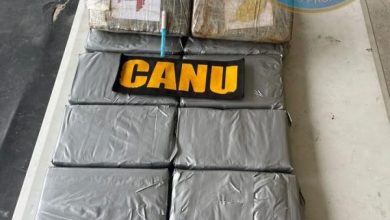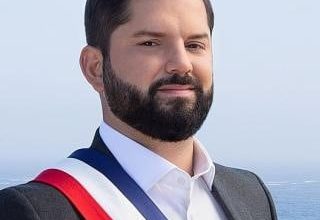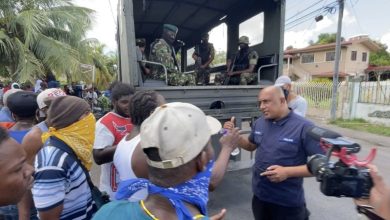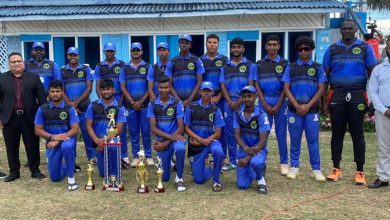COVID-19, Harris dominate Caribbean community in 2020
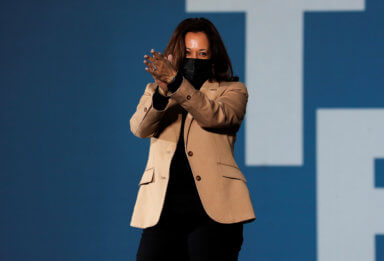
With the closing of 2020, two issues have, by far, particularly dominated Caribbean nationals in the Diaspora.
The ongoing coronavirus (COVID-19) pandemic and the historic election of Caribbean American Kamala Harris, as US Vice President-elect, have had and continue to have implications for the community.
As many in the global community, including the Caribbean community in New York, express fear, reluctance or hesitance about taking the COVID-19 vaccine, some Caribbean-born physicians urged community members to take the vaccine when it becomes available.
“It’s important that people take the vaccine,” said Dr. Yolande Thomas-Badal, a Trinidadian-born internist and Emergency Room physician at Interfaith Medical Center in the Bedford-Stuyvesant section of Brooklyn, who took the COVID-19 vaccine at her hospital two Fridays ago.
“The vaccine is our first best defense from contracting COVID-19,” added Dr. Thomas-Badal, stating that she took the vaccine, because it “offers protection. “You have to think of the other people who you’re around,” Dr. Thomas-Badal added. “Being on the frontline and seeing patients with coronavirus; and, if there’s anything to help me to prevent coronavirus, I’ll do it.”
Dr. Clifford Young — a Vincentian-born attending physician at Woodhull Medical Center in Bedford-Stuyvesant and SUNY Downstate Medical Center and University Hospital in Central Brooklyn, in the heart of the Caribbean community in Brooklyn — said that, while “Black people in this country are fearful of this vaccine, this vaccine is safe.
“I look at the data, and the vaccine is safe,” he accentuated. “Caribbean people and Blacks should take the vaccine.
“We have the most morbidity and mortality; so, we should take it (vaccine),” said Dr. Young, who also has a private medical practice in the Canarsie section of Brooklyn. “We suffer the most, we’re are an at risk-population, and we should be at the head of the line.
“Should we be fearful of the vaccine? And the answer is ‘no,’” Dr. Young said. “When my turn comes, I’ll take it.”
Two other Vincentian physicians — Drs. Desmond Browne and Kenneth “Kenny” Williams — have also urged the Caribbean community to take the COVID-19 vaccine.
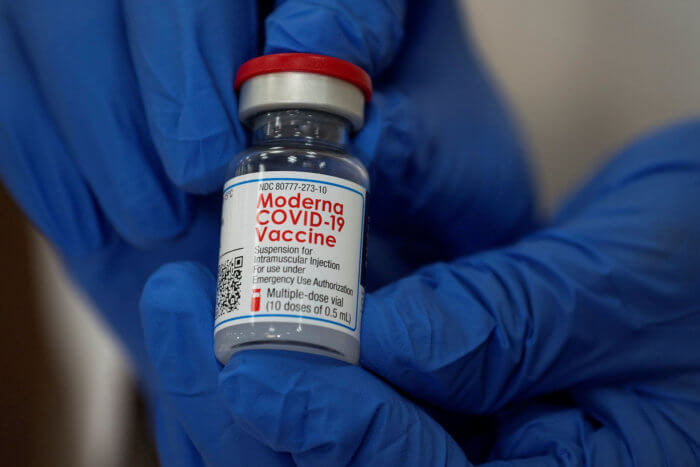
“Everything you do in life is risk versus benefit,” said Dr. Browne, a family practice physician in the Prospect Heights section of Brooklyn. “There are people with medical conditions and people without medical conditions, and they test positive for the COVID-19 antibodies, and they didn’t know they had the virus.
“We (should) take the vaccine, because of the risk of terrible death,” added Dr. Browne, also a staff attending physician at three Brooklyn hospitals – Brooklyn Presbyterian Methodist Hospital, Brooklyn Hospital, and State University of New York (SUNY) Downstate Medical Center and University Hospital of Brooklyn, noting that over 300,000 people in the United States also have died after contracting the COVID-19 virus. “It’s really apples and oranges here.
“We should jump at the opportunity to take the vaccine,” said Dr. Browne, disclosing that he’ll be taking the vaccine this week. “Absolutely, I’m in favor of Caribbean and Vincentian nationals taking the vaccine.”
Dr. Williams, an anesthesiologist at Edinburg Regional Medical Center, Edinburg, South Texas, said he did not hesitate to take the first dose of the vaccine on Dec. 17 – his second does is due on Jan. 4 – “based on information we (medical practitioners) were given, safety and everything else (94-95 percent efficacy).
“Because I deal with patients every time, I decided to get myself more protection sooner rather than later,” said Dr. Williams.
“Caribbean and Vincentian nationals are no different from anyone else,” he added, urging them to take the COVID-19 vaccine. “The vaccine is deemed safe, based on scientific principles. The Pfizer vaccine is the one I took. So far, I have tolerated it, with no side effects.
“The vaccine offers protection against contracting the virus,” he added. “It’s like any other vaccine in that respect. If you never contract the virus, you can’t spread it.
“Vaccination, therefore, limits or significantly curtails the spread of the disease so we could go back to normal life,” Dr. Williams continued. “Caribbean economies would benefit from normalcy.”
Guyanese-born Dr. Leslie Ramsammy, a St. George’s University School of Medicine in Grenada-trained physician, said the Caribbean community should “embrace the vaccine and marvel at the efforts that the world’s scientists have created.
“It’s important to get outside of our politics and see humanity as a species,” said Dr. Ramsammy, who has a private medical practice in Freeport, Nassau County, Long Island. “The vaccine will benefit the world. In the meantime, social distancing and masks remain effective.”
The Atlanta-based US Centers for Disease Control and Prevention (CDC) said it has currently authorized and recommended two vaccines are to prevent COVID-19: Pfizer-BioNTech COVID-19 vaccine and Moderna’s COVID-19 vaccine.
On Dec. 14, a Jamaican-born nurse created history by becoming the first person in the United States to receive the COVID-19 vaccine.
Sandra Lindsay, 52, an Intensive Care Unit (ICU) nurse at Long Island Jewish Medical Center in Queens, received the vaccine shortly before 9:30 a.m., according to a statement from the Office of New York Gov. Andrew Cuomo.
The vaccine was developed by New York-based pharmaceutical company Pfizer and authorized by the US Food and Drug Administration (FDA) and New York’s Clinical Advisory Task Force.
But the Dominican-born president of the Washington, D.C.-based Pan American Health Organization (PAHO) has warned that COVID-19 vaccines will not be an easy, quick fix for the Americas, including the Caribbean.
The COVID-19 pandemic that began in 2020 “is undoubtedly the most extraordinary public health event of our lifetimes,” Dr. Carissa F. Etienne said. “This pandemic stands out in both scale and impact. And it has put a spotlight on two of the longstanding challenges of our region: inequality and underinvestment of our health systems.
Since the start of this pandemic, less than a year ago, PAHO said the Region of the Americas has recorded nearly 31 million cases and 787,000 deaths due to COVID-19. This represents roughly half of all COVID-19 infections and deaths worldwide,” she added.
“While we hope 2021 will usher a new chapter in our fight against this virus, protecting the millions of people in our region with COVID-19 vaccines will be a huge undertaking,” Dr. Etienne warned. “So, we must be patient and remain realistic that COVID-19 will be among us for some time. So, our work to control it cannot and must not stop.” Etienne said.
The PAHO Director noted that 2020 “was a year unlike any other. And I hope that as we look back on it, we remember it not only as the year that brought us COVID-19, but the year we finally decided to make health our top priority.”
Controlling the pandemic, she said, “will require us to heed the lessons we’ve learned thus far and to address the challenges that have long held us back: pervasive inequality and underfunded health systems.
“Health systems across our region struggled to manage the influx of COVID-19 cases due to limited supplies, space and staff,” Dr. Etienne said. “The COVID-19 response also disrupted the essential health services that people depend on to manage conditions like HIV, TB, as well as diabetes and hypertension.
“As a result, patients are at greater risk from these treatable conditions and our region could lose decades of progress against diseases,” she added, stating that the Region of the Americas in 2020 “matched tragedy and adversity with determination and solidarity.
“Some of the most vulnerable people in our region are already receiving COVID-19 vaccines, with millions more doses expected early next year,” Dr. Etienne continued. “This timeline is astonishing and a testament to the unprecedented collaboration among scientists, researchers and experts alike.”
Etienne said that, even as vaccines are rolled out, “countries cannot get complacent; they should continue to promote the appropriate public health measures to control cases, such as mask wearing and social distancing.
“Patients will need to be tested, isolated, cared for, and we must continue to quarantine suspected cases,” she urged. “None of this can stop or we risk too many lives.
“I am concerned about all the work ahead,” she added. “It won’t be easy nor quick.”
Several leading Caribbean artists will perform virtually in a major inauguration party for Caribbean American Vice President-elect Kamala Harris.
According to Invest Caribbean – which claims to be “the number one global private sector, investment agency of the Caribbean” – it has initiated the Caribbean American Action Network (CAAN), a collective of Caribbean American and Caribbean organizations, to present “a live, virtual, Caribbean inauguration party under the theme, ‘Celebrating #CaribbeanAmericanKamala.’”
Invest Caribbean said on Friday that, on Dr. Martin Luther King, Jr. Weekend, Jan. 17, 2021, there will be “an impressive gathering in cyberspace with some of the Caribbean’s most notable artistes, dignitaries, and organizations globally to mark another dynamic moment in history – the pending swearing in of Harris as the first Black and female, Caribbean-American US vice-president at the 59th Presidential inauguration.
It said the event will be co-hosted by the first Black woman in a James Bond movie, Trina Parks, whose roots extend to Barbados, through her mother, and to Antigua through her grandparents.
Invest Caribbean said also set to perform will be Barbados’ own Soca King, Edwin Yearwood of “All Aboard” fame and Krosfyah of “Pump Me Up” fame; as well as rising stars, Toni Norville and Kirk Brown; Jamaican gospel singer Joan Meyers, of “Can’t Even Walk” fame; independent Jamaican artiste Janine Jkuhl of “Sway” fam; and Owen Dalhouse, who recently released “Heal the Soul of America.”
Other performers include the famous Fab Five Band from Jamaica; Guyanese Menes De Griot and Shanto; Vincentian Frankie McIntosh; and Maxie Gouevia and Rashid Thorpe.
“This is a historic moment for us as Caribbean people in these United States, who have been here since slavery, and we are convinced that VP-elect Harris represents the best interest of all Americans, inclusive of those who share her Caribbean ancestry,” said Guyanese-born Felicia Persaud, the brainchild of the event, who is also a journalist, entrepreneur and advocate.
“America and the Caribbean region have always enjoyed a positive working diplomacy,” she added. “And, no doubt, this will be reinforced, as we now have a strong ally in the White house. We are proud that she is one of us.”
The meteoric rise of Democratic Sen. Kamala Harris to vice president-elect of the United States has been welcomed with jubilation in Brown’s Town, in the parish of St. Ann in Jamaica, the birthplace of her father, Dr. Donald Harris, and where several of her relatives still reside, according to the Jamaica Gleaner.
Sen. Harris, of California, the daughter of an Indian mother and Dr. Harris, is the first woman to be elected vice-president of the United States.
She will assume office on Jan. 20, when she and her US presidential running mate, Joe Biden, are sworn in the new US administration.
“It’s a joyous moment in the family through her success, and we are happy for her,” Harris’s cousin, Sherman Harris, told The Gleaner.
Former Caribbean Community (CARICOM) chairperson, Barbados Prime Minister, Mia Mottley, and Jamaica’s Prime Minister Andrew Holness had joined global leaders in congratulating US President-elect Joe Biden and Harris, the Gleaner reported.
“America has spoken, and the world is inspired,” said Motley on Twitter.
“I am sure that we here in the Caribbean will look forward with optimism to working with the new administration to confront a number of global issues- from the awful pandemic, to the climate crisis which we face, to the pursuit of racial justice,” Mottley added.
Holness also expressed pride for Harris’ Jamaican roots, as he congratulated Biden and Harris’ win, according to the Gleaner.
“America will have its first female vice president in the person of Kamala Harris, and we are proud that she bears Jamaican heritage,” he tweeted.
“I salute her,” he added. “We look forward to working with the new administration.”
Harris said her mother, the late Shyamala Gopalan Harris, met her father at the University of California Berkeley, who had come from Jamaica to study economics.
“They fell in love in that most American way — while marching together for justice in the civil rights movement of the 1960s,” Harris disclosed.
On her Senate website, Harris said she has spent her life fighting injustice, a passion she said that was first inspired by her mother, an Indian-American immigrant, activist and breast cancer researcher.
Growing up in Oakland, Harris said she had “a stroller-eye view” of the Civil Rights movement.
Through the example of courageous leaders like Thurgood Marshall, Constance Baker Motley and Charles Hamilton Houston, Harris said she “learned the kind of character it requires to stand up to the powerful,” resolving to spend her life “advocating for those who could not defend themselves.”
After earning an undergraduate degree from Howard University in Washington and a law degree from the University of California, Hastings, Harris began her career in the Alameda County District Attorney’s Office in California.
In 2003, Harris became the District Attorney of the City and County of San Francisco, California.
Among her achievements as District Attorney, Harris said she started a program that gives first-time drug offenders “the chance to earn a high school diploma and find employment.”
Having completed two terms as the District Attorney of San Francisco, Harris was elected as the first African-American and first woman to serve as California’s Attorney General.
In this role, she said she “worked tirelessly to hold corporations accountable and protect the state’s most vulnerable people.”
In the United States Senate, Harris said her mission remains unchanged: “fighting for the rights of all communities in California.”
Since taking office, she said she has introduced and cosponsored legislation to raise wages for working people, “reform our broken criminal justice system, make healthcare a right for all Americans, address the epidemic of substance abuse, support veterans and military families, and expand access to childcare for working parents.”
But whatever her current relationship with her father, Harris’s Jamaican ancestry cannot be omitted or overlooked from her achievements, as she is poised to be the first woman Vice President of the United States.
“And to the American people, no matter who you voted for, I will strive to be a vice president like Joe was to President (Barack) Obama – loyal, honest, and prepared, waking up every day thinking of you and your family, because now is when the real work begins, the hard work, the necessary work, the good work, the essential work to save lives and beat this (COVID-19) epidemic, to rebuild our economy, so it works for working people, to root out systemic racism in our justice system and society, to combat the climate crisis, to unite our country and heal the soul of our nation,” said Harris is her victory speech.
“The road ahead will not be easy, but America is ready; and so are Joe and I,” she added.
The post COVID-19, Harris dominate Caribbean community in 2020 appeared first on Caribbean Life News.

